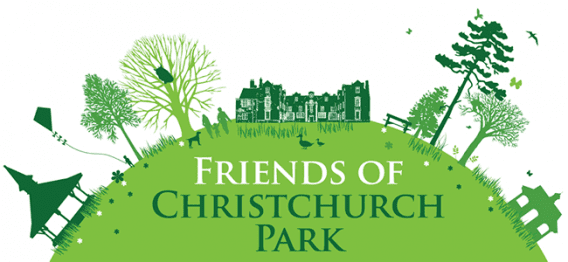At the FoCP AGM held recently a man associated with the Christchurch Park ‘Park Run’ made a complimentary comment. Apparently some participants come from all over the world to take part in British Park Runs, Australia, America and South Africa being among the countries mentioned. These runners come to Britain to take part in runs beginning with each letter of the alphabet and as Ipswich is one of only two towns beginning with ‘I’, the other being Inverness, then our town and Christchurch Park in particular is a more obvious run in which to take part. Many of the runners have commented on the beauty of our Park. Marvellous news. For those of you who have not seen a Park run, then you are missing a very colourful spectacle with hundreds of athletes of all ability in various uniforms running and walking sometimes through our delightful park. And what is so good is that the organisers clear up after the event.
When spring arrived a few days ago, although it has since disappeared, I counted 26 species of birds in or over our garden. That is 7 more species than seen on a recent organised Park walk. We are losing many bird species from our Park for a number of reasons with the Park becoming unfriendly to our song birds. How fortunate therefore that many of our small birds seek refuge in our nearby gardens where there is less disturbance, more food and varied and safe habitat for nesting. Amongst 5 species of butterfly also seen on that day was a brimstone. What a delightful creature and what colour. Incidentally, the following day I added 4 more species to that bird list, including a cormorant flying overhead after, I suppose, having had breakfast in the Wilderness Pond. There was a time when it would have been impossible to include a cormorant as a garden bird but there was also a time when I could have included a cuckoo.
I have discovered this week that we are not only losing our songbirds but we are also losing words which are synonymous with the countryside. I am reading an excellent book entitled ‘Landmarks’ by Robert MacFarland which was a number one in the Sunday Times best-seller listing. MacFarland is fascinated by connections between literature and landscape and his book explores the linguistic and literary terrain from all over Britain including Suffolk. One astonishing paragraph commented on the Oxford Junior Dictionary because a sharp-eyed reader had noted that there had been a culling of words connected to nature. Under pressure, Oxford University Press revealed a list of words that it felt that were no longer relevant to modern day childhood. The deletions included: acorn, adder, ash, beech, bluebell, buttercup, catkin, conker, cowslip, cygnet, dandelion, fern, hazel, heather, heron, ivy, kingfisher, lark, mistletoe, nectar, newt, otter, pasture and willow. The words introduced in the new edition include: attachment, block-graph, blog, broadband, bullet point, celebrity, chat room, cut and paste, MP3 player and voice mail. When the Head of the Children’s Dictionaries at Oxford University Press was asked why nature words had been deleted, she explained that the dictionary needed to reflect the consensus experience of modern day childhood because nowadays the environment has changed. How sad therefore that the majority of children apparently no longer note the changes of season or indeed have any idea of the rural environment. “Mummy where does meat come from? From a Supermarket of course!”
